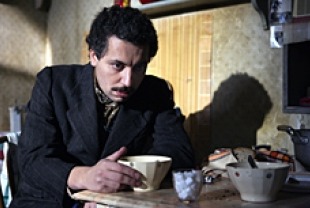The racial tensions exploding in France today prove that hatred of Arabs and Muslims has long been a tradition in the country. It is a legacy shared in other so-called civilized nations, including the United States. This bold French film reveals an incident in the country's past that was left out of the history books for 40 years.
Director Alain Tasma has stated that he has great respect for the cinema of Ken Loach, Stephen Frears, and Alan Clark, who have created moving and prophetic films that blur the boundaries between fiction and documentary. This work fits into that noble tradition.
In 1961, France's seven-year war with Algeria is winding down and de Gaulle is planning to negotiate a peace treaty. But certain radical members of the Front de Liberation Nationale (FLN), who live in France, are fed up with the enemy's slaughter of their people in Algeria and the persecution of Muslim Arabs in Paris. They have begun a terrorist campaign of randomly murdering policemen. These acts of violence have firmed the resolve of Maurice Papon, the chief of the Paris police, who institutes a curfew. Various racist policemen kill some of the Algerians on their own.
Among the fictional characters caught up in the tension of the times are a young Algerian who has a job and is trying to educate himself so he can become a full-fledged French citizen; one of his teachers who experiences the racial prejudice that is part of his daily life when she accompanies him to the police station and is humiliated by a bigoted policeman; a television reporter whose friend, an FLN sympathizer, tells her that one day she will see the injustices going on in France; a sergeant who tries to be a restraining force among his police comrades but finds that racial hatred is too strong; and an FLN radical who is convinced that the war with France demands daily acts of revenge to retaliate for the savageries perpetrated on his people.
On October 17, Papon learns that FLN is planning a demonstration in Paris. What he does not know is that the march is to be a peaceful protest. He sees it as a declaration of war on the streets of his city and orders his men to use force. More than 7,500 Algerian immigrants are arrested out of the 11,000 marchers, and many are shot or beaten to death. Some bodies are tossed into the Seine, and those with serious wounds are denied treatment. The numbers range from 48 - 200 unarmed men, women, and children.
The shadow of Islamophobia is still manifesting in France. It's a good sign that this ignored day of ignominy has been brought into the light.
Originally screened at the New Directors/New Films Festival 2006 in New York City. Museum of Modern Art
